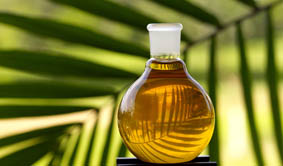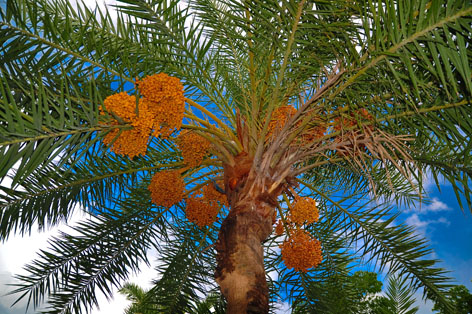Palm Oil Polyols
Polyols are generally manufactured by one or two possible chemical routes. At present, most polyols used in the polyurethane industry are petroleum-based, where crude oil and coal are used as starting raw materials.
POLYOLS are generally manufactured by one or two possible chemical routes, namely alkoxylation and esterification.
At present, most polyols used in the polyurethane industry are petroleum-based, where crude oil and coal are used as starting raw materials.
However, these materials have been escalating in price and rate depletion is high, as well as the required processing system.
This necessitates a look at utilising plants that can serve as alternative feed stocks of monomers for the polymer industry.

Moreover, with increasing annual consumption of polyurethane, its industrial waste is a serious matter. For instance, in Europe and the United States, government regulations encouraged recycling of materials to avoid excessive usage of landfill area.
However, with the thermosetting behaviour of polyurethane, the recycling activity is difficult and limited. The best alternative is biodegration.
Universiti Kebangsaan Malaysia researcher Prof Madya Dr Khairiah Badri said biodegradable polymers have widely been used in the pharmaceutical industry, such as suture use, wound-dressings, surgical implants and medicine-delivering system.
“But there are still some use limitations, either due to high production cost or low performance.

“This performance can be achieved by the chemical and physical modification of these materials through a combination of biodegradable and non-biodegradable materials,” she said.
Dr Khairiah said Universiti Kebangsaan Malaysia’s (UKM) vegetable oil-based polyurethane polyols provides a process for preparing natural oil-based polyols from palm kernel oil and/or coconut oil by way of a two-step polyesterification and polycondensation process.
She said this process is formed by adding refined, bleached and deodorised palm kernel oil and/or refined, bleached and deodorised coconut oil into a mixture of a polyhydric alcohol or a combination of polyhydric alcohols, with or without a polysaccharide alcohol and a catalyst.
“The palm kernel oil and/or coconut oil will undergo hydroxylation by way of polyesterification and polycondensation, so as to form a natural oil-based polyol,” she said.
Dr Khairiah said oleochemical products from vegetable oil, namely palm kernel oil and coconut oil, are seen as an ideal alternative to petroleum-based polyols due to the depleting supply of petrochemicals.
Furthermore, polyurethane materials produced from petrochemical products have limitations due to the increasing price and environmental problems related to their by-products.
On the other hand, polyesters based on plants have better fire retardancy compared to petrochemical-based polyesters.
Source: urethaneblog



Comments (0)